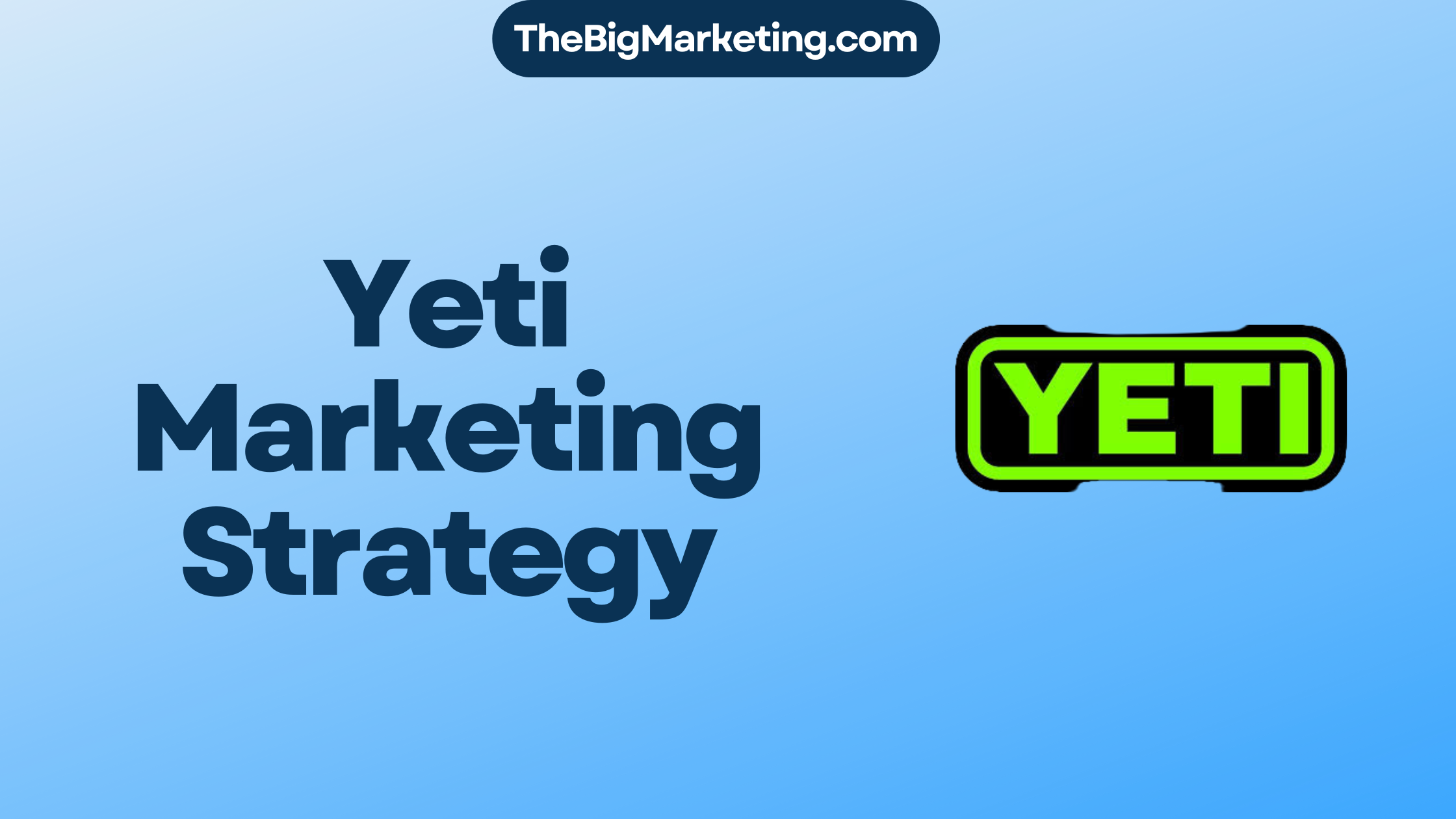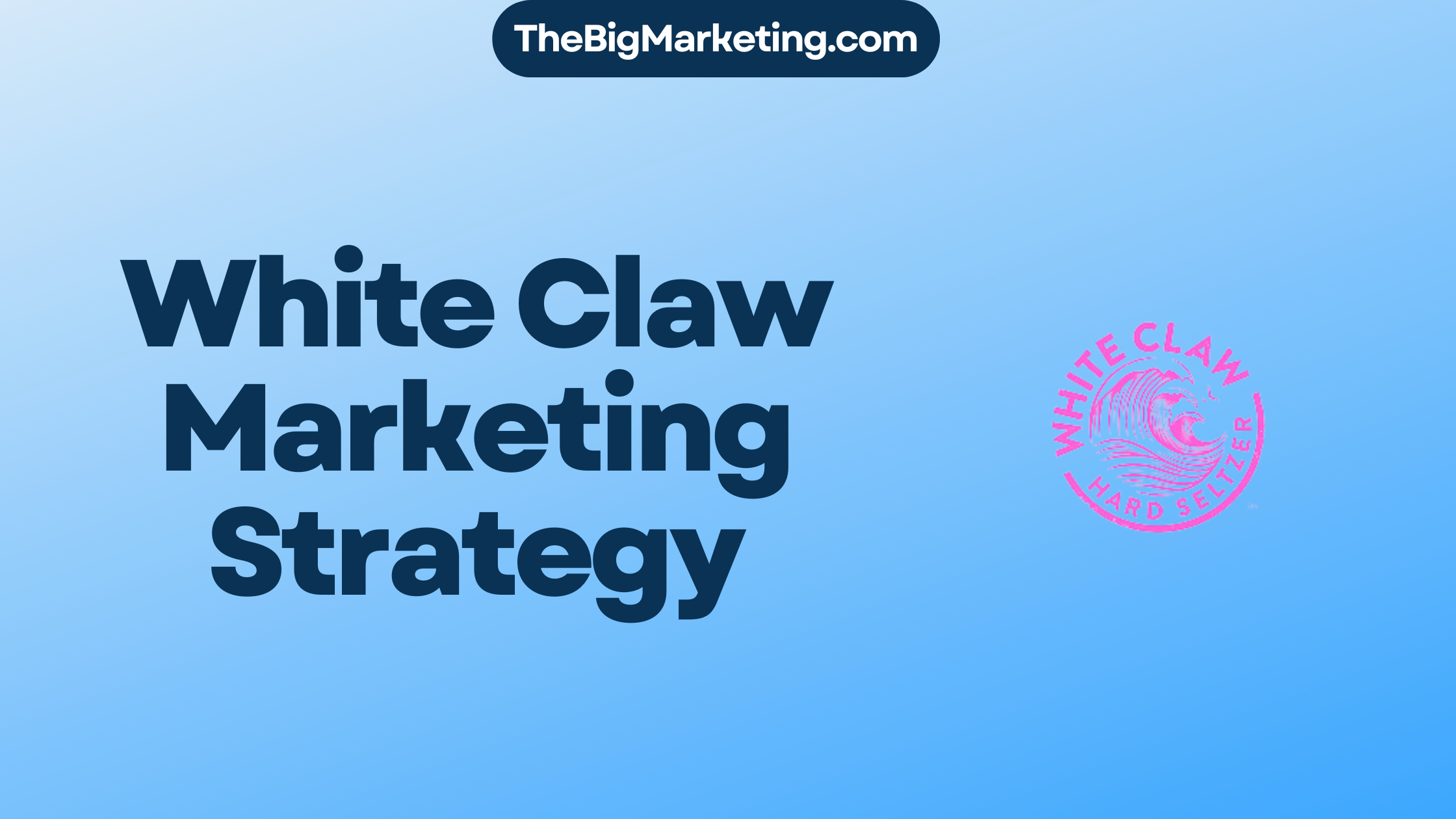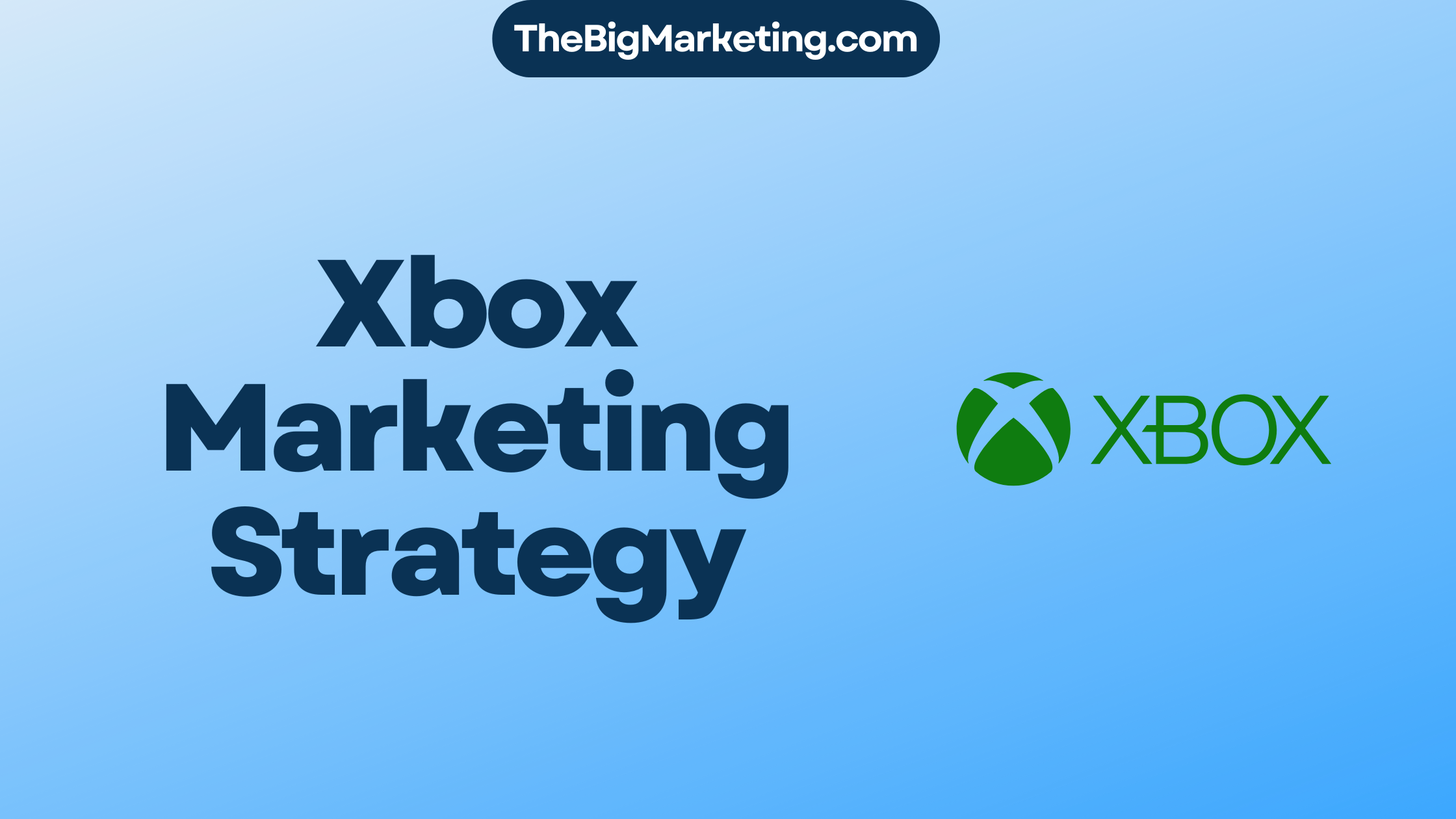Dyson, a renowned brand in the household and personal care product industry, has made significant strides in the market through its innovative marketing strategy. With a focus on innovation, problem-solving, and quality, Dyson has positioned itself as a leader in multiple markets.
Founded by James Dyson, the company has prioritized research and development, boasting a team of talented engineers and designers who constantly work on groundbreaking ideas and technologies. This commitment to innovation has helped Dyson build a loyal customer base and establish itself as a trusted brand.
Dyson’s marketing strategy encompasses various advertising channels, including TV ads, digital advertising, and influencer marketing, to effectively promote its unique and high-quality products. By utilizing these tactics, Dyson has successfully driven sales, built brand loyalty, and maintained profitability.
Key Takeaways:
- Dyson’s marketing strategy revolves around innovation, problem-solving, and quality.
- The company heavily invests in research and development to stay ahead of the competition.
- Dyson leverages various advertising channels to promote its unique and high-quality products.
- The brand’s commitment to quality has helped build a loyal customer base.
- Dyson’s marketing strategy focuses on driving sales, building brand loyalty, and maintaining profitability.
The History of Dyson
Dyson, a renowned brand known for its innovative products, was formally founded in 1991 by James Dyson, a visionary inventor and engineer. With a background in inventing and industrial design, Dyson had already made a name for himself by developing and licensing groundbreaking inventions such as the “Ballbarrow” and the “Dyson Bagless Cyclone” vacuum cleaner.
Driven by dissatisfaction with the existing vacuum cleaners in the market, James Dyson set out on a mission to create his own revolutionary vacuum cleaner. His perseverance and dedication to solving a common problem led to the introduction of cyclonic separation technology in vacuum cleaners, which became a hallmark of Dyson’s brand strategy.
In 1991, the Dyson company was formed, marking the official start of Dyson’s journey towards transforming the home appliances industry. Since then, Dyson has continued to push boundaries and expand its product line beyond vacuum cleaners. The company has ventured into other household products, revolutionizing fans, air purifiers, hair dryers, and even personal care and beauty products.
Through its commitment to innovation and problem-solving, Dyson has established itself as a trailblazer in the industry. With a focus on combining cutting-edge technology, sleek design, and exceptional performance, Dyson’s brand strategy has captivated consumers around the world. The company’s continuous investment in research and development has allowed it to stay at the forefront of the market, introducing revolutionary products that meet the evolving needs of consumers.
| Year | Milestone |
|---|---|
| 1991 | Formation of Dyson as a company |
| 1993 | Introduction of the DC01, the first commercialized Dyson vacuum cleaner |
| 2009 | Launch of the Air Multiplier, a revolutionary bladeless fan |
| 2016 | Debut of the Supersonic hair dryer, incorporating Dyson’s advanced technology in haircare |
| 2020 | Introduction of the V11, the most advanced cordless vacuum cleaner in Dyson’s lineup |
Dyson’s Culture of Innovation and Problem-Solving
Dyson’s success as a brand and a leader in multiple markets can be attributed to its culture of innovation and problem-solving. At the heart of Dyson’s ethos is the belief in solving problems that others have ignored and finding ingenious solutions using technology.
Founder James Dyson has consistently emphasized the importance of pushing boundaries and challenging the status quo. This culture of innovation permeates every aspect of the company, especially in its product development process.
A dedicated team of engineers and designers at Dyson constantly explore new ideas and technologies, seeking to redefine the boundaries of what’s possible. They are encouraged to think creatively and find unconventional solutions to everyday problems.
Dyson’s commitment to innovation is further reinforced by its substantial investment in research and development. The company allocates significant resources and funding to develop new products and technologies that address the needs and desires of consumers.
The Innovation Cycle at Dyson
At Dyson, the innovation cycle starts with identifying pressing challenges in various industries and markets. This process involves comprehensive research and analysis to understand the pain points and unmet needs of consumers.
Once a problem is identified, Dyson’s team of engineers and designers collaborate to develop new ideas and concepts. These nascent ideas are further refined through rigorous prototyping, testing, and iteration. Only after thorough evaluation and optimization does Dyson move towards production.
Throughout this iterative process, Dyson values experimental thinking, encourages risk-taking, and fosters an environment where new ideas can thrive. The company understands that failure is an essential part of the innovation journey and encourages its employees to learn from setbacks and adapt quickly.
The culture of innovation and problem-solving at Dyson has enabled the company to stay at the forefront of technological advancements. By consistently challenging the status quo and pushing boundaries, Dyson has established itself as a pioneer, creating innovative products that cater to evolving consumer demands.
In the next section, we will explore Dyson’s unwavering commitment to quality and how it sets the brand apart.
Dyson’s Commitment to Quality
Dyson is renowned for its unwavering commitment to producing high-quality products that consistently exceed customer expectations. The company’s dedication to quality has propelled it to the forefront of the market and solidified its position as a trusted and respected brand.
Every Dyson product is meticulously designed and engineered to deliver exceptional performance and durability. From vacuum cleaners to hairdryers and air purifiers, Dyson’s products are known for their superior functionality and long-lasting reliability.
One of the hallmarks of Dyson’s commitment to quality is its meticulous attention to detail. Every component, from the smallest screw to the most complex mechanism, is carefully crafted and rigorously tested to ensure optimal performance and durability.
Over-Engineering for Superior Performance
Dyson’s commitment to quality is further exemplified through its practice of over-engineering. The company goes above and beyond industry standards to ensure that its products not only meet but exceed customer expectations.
By employing cutting-edge technology and innovative design, Dyson creates products that consistently outperform their competitors. Whether it’s the powerful suction of a vacuum cleaner or the precision airflow of a hairdryer, Dyson’s products are engineered to deliver unparalleled performance.
This relentless pursuit of quality has instilled a sense of confidence and trust in Dyson’s customers. They know that when they purchase a Dyson product, they are investing in a high-quality product that will stand the test of time.
Dyson’s Commitment to Sustainable Manufacturing
In addition to prioritizing quality, Dyson is also committed to sustainable manufacturing practices. The company strives to minimize its environmental impact by using recycled and recyclable materials in its products.
Not only does Dyson prioritize quality and performance but also sustainability. By incorporating eco-friendly materials and designing products with longevity in mind, Dyson ensures that its customers can enjoy high-quality products without compromising the well-being of the planet.
| Benefits of Dyson’s Commitment to Quality |
|---|
| 1. Superior Performance |
| 2. Long-lasting Durability |
| 3. Meticulous Attention to Detail |
| 4. Over-Engineering for Optimal Performance |
| 5. Sustainable Manufacturing Practices |
Dyson’s Brand Identity and Marketing Tactics
Dyson has successfully leveraged its strong brand identity across categories. The company’s products are easily recognizable as Dyson products, creating a sense of trust and reliability among consumers. Dyson’s marketing tactics focus on highlighting the product itself, with a strong emphasis on product shots and illustrations that showcase the design and technology behind the products.
The company’s marketing messages are kept simple and concise, allowing the product and visuals to speak for themselves. Dyson has also utilized various advertising channels, including TV ads, digital advertising, and influencer marketing, to reach its target audience and promote its products effectively.
| Marketing Tactics | Description |
|---|---|
| Product Shots and Illustrations | Dyson’s marketing materials place a strong focus on showcasing the design and technology of their products through visually appealing product shots and illustrations. This helps to communicate the unique features and benefits of their products to consumers. |
| Simple and Concise Messaging | Dyson’s marketing messages are kept simple and concise, allowing the product and visuals to take center stage. By keeping the messaging straightforward, Dyson effectively communicates the value and innovation of their products without overwhelming the audience. |
| Multi-channel Advertising | Dyson utilizes a variety of advertising channels to reach its target audience. This includes traditional forms of advertising, such as TV ads, as well as digital advertising and influencer marketing campaigns. This multi-channel approach helps to maximize their reach and engage with consumers across different platforms. |
By leveraging its strong brand identity and implementing strategic marketing tactics, Dyson has successfully positioned itself as a leader in the market. The company’s focus on showcasing its products through compelling visuals and concise messaging has resonated with consumers, promoting brand loyalty and driving sales.
Dyson’s Pricing Strategy
Dyson employs a unique pricing strategy that sets it apart from mainstream price points in the market. The company deliberately establishes higher and more controlled pricing for its products, positioning them as premium offerings. These higher price points are justified by Dyson’s well-established reputation for quality, innovation, and performance. By setting higher prices, Dyson creates a perceived sense of exclusivity and luxury, appealing to consumers who value high-end products and are willing to pay a premium for exceptional quality.
Despite the higher price points, Dyson has managed to successfully capture a mass market audience while maintaining profitability. This can be attributed to the company’s ability to differentiate its products through innovative features and superior performance. Dyson’s marketing campaigns effectively communicate the value proposition of their products, highlighting the unique benefits that justify the higher price.
Dyson Pricing Strategy Key Factors
- Brand Reputation: Dyson’s reputation for quality and innovation justifies higher pricing.
- Perception of Exclusivity: Higher prices create a perception of luxury and exclusivity.
- Differentiation: Dyson’s products offer unique features and superior performance.
- Target Market: Dyson targets consumers who appreciate and are willing to invest in high-quality products.
| Advantages of Dyson’s Pricing Strategy | Challenges of Dyson’s Pricing Strategy |
|---|---|
|
|
Dyson’s Digital Marketing and Advertising Strategy
Dyson has successfully utilized a combination of digital marketing and advertising strategies to effectively promote its products and reach its target audience. The company has made significant investments in establishing a strong online presence and leveraging various digital platforms to maximize its brand exposure.
One of Dyson’s key digital marketing strategies is its active presence on social media platforms. Through engaging content, interactive campaigns, and influencer collaborations, Dyson effectively reaches and engages with its target audience. By using platforms such as Instagram, Facebook, and Twitter, the company can showcase its innovative products and build a vibrant online community of loyal customers.
Additionally, Dyson has employed targeted digital campaigns to further enhance its reach. By utilizing precise audience segmentation and data-driven insights, the company is able to deliver personalized advertisements to potential customers, increasing the effectiveness of its marketing efforts. Dyson’s digital campaigns strategically showcase its products, utilizing vivid illustrations and animations that highlight the design, technology, and innovation behind each offering.
Moreover, Dyson has recognized the power of influencer marketing in amplifying its brand message. The company collaborates with influential individuals across various industries who align with its values and target audience, allowing them to share their genuine experiences with Dyson products. This approach helps build trust and credibility among consumers, driving brand awareness and sales.
In addition to its digital marketing efforts, Dyson has also heavily invested in high-budget TV advertising campaigns. The company’s TV ads effectively communicate its brand message and differentiate its products from competitors, creating a strong and lasting impression on viewers.Overall, Dyson’s digital marketing and advertising strategy showcases its commitment to innovation and effective brand communication. By utilizing a multi-channel approach, Dyson maximizes its reach and engagement with consumers, driving brand awareness, product sales, and maintaining its position as an industry leader.
Dyson’s Market Research and Competitive Analysis
Dyson understands the importance of market research and competitive analysis as essential components of its strategic planning and decision-making process. By investing in comprehensive market research, Dyson gains valuable insights into consumer preferences, trends, and needs in various markets. This enables the company to develop products that align with specific consumer demands, ensuring a competitive edge in the industry.
In addition to market research, Dyson conducts in-depth competitive analysis to assess the strengths and weaknesses of its competitors’ products and marketing strategies. This analysis provides valuable intelligence that helps Dyson identify opportunities for differentiation and innovation, ultimately allowing the company to position its products effectively in the market.
Market Research
Dyson’s market research efforts are grounded in understanding consumer behavior and market dynamics. By gathering data on consumer preferences, buying patterns, and demographic insights, Dyson gains a comprehensive understanding of its target audience. This enables the company to develop products that cater to specific customer needs and desires, thereby increasing the chances of market success.
Through its market research initiatives, Dyson also identifies emerging trends and market opportunities, ultimately guiding its product development and innovation strategies. By staying attuned to consumer demands and market dynamics, Dyson positions itself as a leader in introducing cutting-edge solutions that address ever-evolving customer needs.
To illustrate the findings of Dyson’s market research efforts, we present the following table:
| Market Research Insights | Implications |
|---|---|
| Strong consumer demand for eco-friendly and sustainable products | Dyson can focus on incorporating environmentally friendly features into its product line, attracting eco-conscious customers and differentiating itself from competitors. |
| Rising preference for smart home technology | Dyson can invest in developing and marketing products with integrated smart features, catering to consumers’ desire for convenience and automation in their homes. |
| Growing interest in health and well-being | Dyson can explore opportunities to expand into personal care and wellness products, leveraging its expertise in technology and innovation to meet consumer demands in this emerging market. |
Competitive Analysis
Dyson’s competitive analysis efforts focus on examining its rivals’ products, marketing strategies, and market positioning. By analyzing its competitors’ strengths and weaknesses, Dyson gains insights into areas where it can differentiate itself and gain a competitive advantage.
Through competitive analysis, Dyson identifies industry trends and benchmarks its products against rival offerings. This analysis allows Dyson to refine its product development strategies, ensuring that its products stand out in terms of superior performance, quality, and innovative features.
To highlight the outcomes of Dyson’s competitive analysis, we present the following table:
| Competitor Analysis | Implications |
|---|---|
| Competitor X emphasizes affordability and mass-market appeal | Dyson can differentiate itself by focusing on premium offerings, highlighting superior quality, performance, and innovative design to cater to customers seeking high-end, technologically advanced products. |
| Competitor Y dominates the market with extensive distribution networks | Dyson can explore strategic partnerships and collaborations to expand its distribution channels and reach a wider customer base. |
| Competitor Z excels in marketing and brand storytelling | Dyson can enhance its marketing campaigns to effectively communicate its own unique brand story, leveraging its reputation for innovation, quality, and problem-solving. |
By incorporating market research insights and competitive analysis findings into its strategic decision-making, Dyson maintains its competitive edge, drives product innovation, and effectively positions its offerings in the market.
Dyson’s Target Audience and Marketing Objectives
Dyson has a clear understanding of its target audience, which consists of consumers who value innovation, quality, and performance in household and personal care products. The company has successfully positioned its products as premium offerings, appealing to consumers who are willing to invest in high-quality and technologically advanced products.
By targeting this specific audience, Dyson aims to achieve its marketing objectives, which include:
- Increasing Brand Awareness: Dyson’s marketing efforts are focused on creating brand visibility and recognition among its target audience. Through strategic advertising and promotional activities, Dyson intends to build a strong brand presence in the market.
- Driving Product Sales: One of Dyson’s primary marketing objectives is to generate sales and revenue. The company aims to showcase the unique features and benefits of its products to attract customers and convince them to make a purchase.
- Building Brand Loyalty: Dyson aims to cultivate a sense of loyalty and trust among its customers. By consistently delivering high-quality products and exceptional customer experiences, Dyson strives to create a long-term and loyal customer base.
To achieve these objectives, Dyson focuses on effective communication strategies that highlight the unique features and benefits of its products. Through targeted marketing campaigns, Dyson aims to establish itself as a trusted and respected brand among its target audience.
To create a strong emotional connection with consumers, Dyson employs storytelling techniques that emphasize the brand’s values and innovation. By portraying the impact of Dyson’s products on consumers’ lives, the company aims to evoke positive emotions and forge lasting relationships.
Dyson’s marketing strategy revolves around understanding its target audience and tailoring its campaigns and messaging to resonate with them. By continuously analyzing consumer preferences and market trends, Dyson ensures that its marketing efforts align with the evolving needs and desires of its target audience.
Ultimately, through its strategic targeting and clear marketing objectives, Dyson aims to secure its position as a leader in the market and continue its growth trajectory.
Conclusion
Dyson’s innovative and forward-thinking marketing strategy has propelled the brand to great success in various markets. By focusing on innovation, quality, and problem-solving, Dyson has positioned itself as a leader and a trusted brand in the industry. The company’s commitment to research and development ensures that it stays at the forefront of technology and offers cutting-edge products to its customers.
Through strategic marketing tactics such as product-focused advertising, digital marketing, and influencer partnerships, Dyson has effectively reached its target audience and created awareness for its unique and high-quality products. The brand’s strong identity and reputation for quality have allowed it to establish higher price points and differentiate itself from competitors in the market.
By conducting extensive market research and competitive analysis, Dyson understands consumer preferences and adapts its marketing strategies accordingly. This enables the brand to continuously meet the evolving needs of its target audience and maintain its position as a market leader.
In conclusion, Dyson’s marketing strategy, with its focus on innovation, quality, and customer satisfaction, has proven to be a winning formula. The brand’s ability to continuously adapt and innovate sets it apart from its competitors and ensures continued success in the ever-changing market landscape.
FAQ
What is Dyson’s marketing strategy?
Dyson’s marketing strategy revolves around innovation, quality, and problem-solving. The company focuses on showcasing its unique features and benefits through product-focused advertising, digital marketing, and influencer partnerships. Dyson also sets higher price points to position its products as premium offerings.
When was Dyson founded and by whom?
Dyson was founded in 1991 by James Dyson, an inventor and engineer with a background in industrial design.
What is Dyson’s culture like?
Dyson’s culture is centered around innovation and problem-solving. The company emphasizes solving problems that others have ignored and using technology and ingenuity to create innovative products. Dyson has a dedicated team of engineers and designers who constantly work on new ideas and technologies.
Why is Dyson known for quality?
Dyson is known for producing high-quality products that are designed to last. The company pays meticulous attention to detail and over-engineers its products to deliver efficient and effective results. Dyson’s commitment to quality has helped build a loyal customer base and establish the brand as reliable and trusted.
How does Dyson promote its products?
Dyson promotes its products through various marketing tactics, including TV ads, digital advertising, and influencer marketing. The company focuses on showcasing the product itself through visual illustrations and animations that highlight the design and technology behind the products.
Why does Dyson have higher prices?
Dyson has established higher price points to position its products as premium offerings. The higher prices are justified by the brand’s reputation for quality, innovation, and performance. This strategy creates a perception of exclusivity and luxury, appealing to consumers looking for high-end products.
How does Dyson utilize digital marketing?
Dyson has a strong online presence and uses social media platforms, influencer marketing, and targeted digital campaigns to reach its target audience. The company combines vivid illustrations and animations with concise messaging to effectively communicate the design, technology, and innovation behind its products.
How does Dyson conduct market research?
Dyson invests in market research to understand consumer preferences and needs. The company uses research to develop products that meet specific demands and differentiate itself from competitors. Dyson also conducts competitive analysis to assess competitors’ products and marketing strategies and stay ahead of the competition.
Who is Dyson’s target audience?
Dyson’s target audience consists of consumers who value innovation, quality, and performance in household and personal care products. The company appeals to consumers willing to invest in high-quality and technologically advanced products.
What are Dyson’s marketing objectives?
Dyson’s marketing objectives include increasing brand awareness, driving product sales, and building brand loyalty. The company aims to communicate the unique features and benefits of its products, establish itself as a trusted and respected brand, and create a strong emotional connection with consumers.







